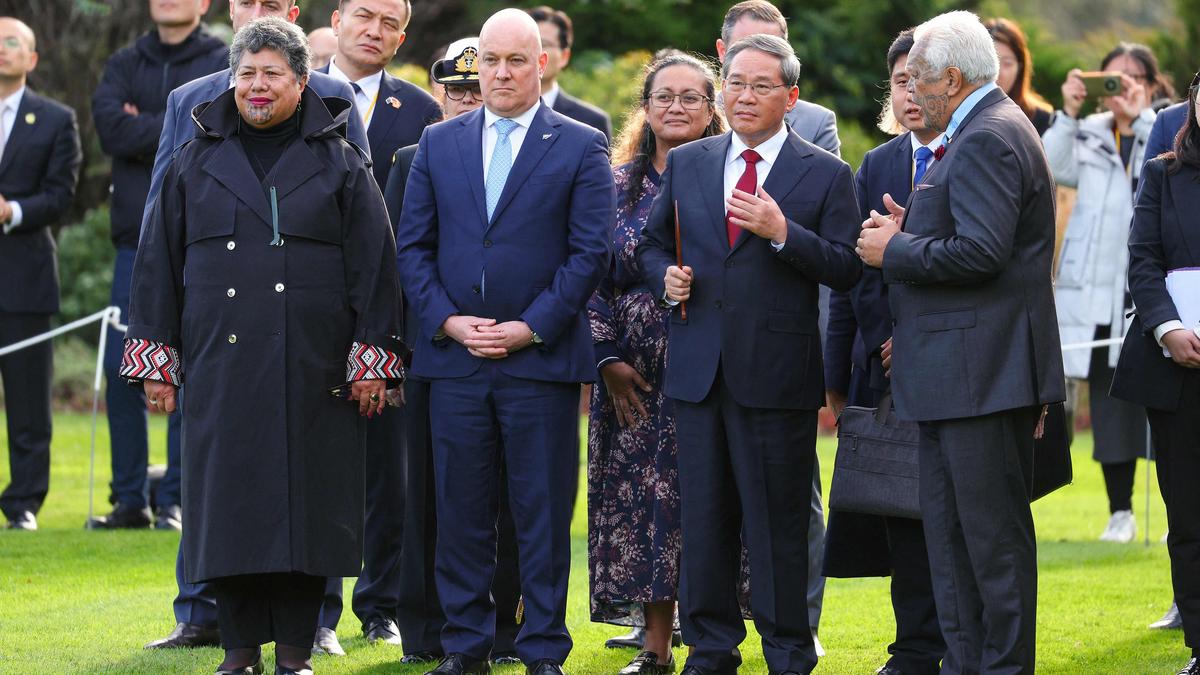
China's Premier Li is visiting New Zealand, where security fears vie with trade hopes on the agenda
The Hindu
China’s Premier Li Qiang arrived in New Zealand on June 13, beginning a rare visit to its closest partner among Western democracies
China's Premier Li Qiang arrived in New Zealand on June 13, beginning a rare visit to its closest partner among Western democracies, where a celebration of trade links is expected to vie with concerns about South Pacific security on Wellington's agenda.
China's No. 2 official, Mr. Li is the first Chinese premier to visit New Zealand since a 2017 visit by Li Keqiang. He will also visit Australia and Malaysia, China's Foreign Ministry said this week. The trip coincides with easing tensions between Australia and China that have vexed the relationship in recent years.
New Zealand's Prime Minister Christopher Luxon is expected to salute trade links with China in public statements this week. China is the South Pacific nation's largest trading partner, with two-way trade worth 36 billion New Zealand dollars (USD 22 billion). They signed a bilateral free trade agreement in 2008 — China's first with an Organisation for Cooperation and Development nation — and the visit marks the 10th anniversary of a pledge to bolster ties signed in 2014 when China's President Xi Jinping last visited Wellington.
But while Mr. Luxon hailed the visit in remarks to reporters on Monday as presenting renewed opportunities for business, Wellington has long sought to diversify the country's export market away from dependence on China and the visit will not be a simple story of economic success as engagements with New Zealand leaders have sometimes been before.
As China and the U.S. vie for influence in the Pacific, Mr. Luxon spoke ahead of a tour of Niue and Fiji this month of “increasingly choppy geostrategic waters” for the region, although he stopped short of naming China except as one of a list of countries jockeying for sway.
New Zealand has in recent years taken a less assertive line with Beijing on security matters than its Western partners in the Five Eyes intelligence sharing partnership and has sought a consistent foreign policy approach to Beijing that spans political parties and administrations. But Luxon told reporters Monday that there were areas where, in talks with Li, Wellington would “call out our differences and discuss those openly, too.” One point of friction is likely to be New Zealand's contemplation of joining one tranche of the AUKUS security pact among Australia, the United States and Britain.
“We happen to think AUKUS is good from a security point of view, providing security into the Indo-Pacific,” Luxon said, calling it appropriate that New Zealand explores its options under the agreement before deciding whether to participate.











